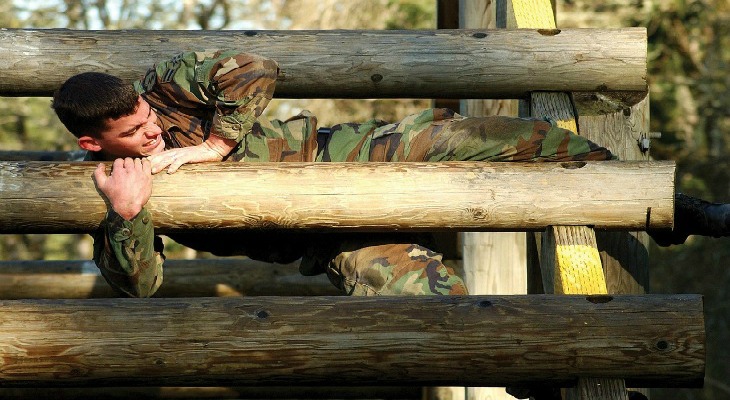7 Useful Advice for Your Transition from High School to College
Out of the frying pan and into the fire, the journey from high school to college is by no means a walk in the park. But if you’re feeling anxious, here are 7 useful bits of advice to aid you!
Updated 21 Nov 2017

After weeks of intense preparation attending workshops, plastering yourself with stacks of past year exam papers and consuming excessive amounts of caffeine, you kiss the good old perhimpunan days goodbye because…
SPM is finally over!
Now, as you ponder your existence and make the transition from high school to college, you may find yourself undergoing a metamorphosis from a pimply-faced scrawny 17-year-old to a highly sophisticated young adult (we hope!).
But apart from your physical appearance, you will undoubtedly be facing some notable changes as you graduate from classrooms to lecture halls. Before you start panicking, here are 7 tips to help you as you venture into college.
#1. Have an open mind

One of the noticeable changes that you’ll discover about college is how vastly different it is compared to your high school days, so much that you may have a hard time wrapping your head around the change of environment.
College is a time where you’ll be exposed to an extensive array of people and experiences, a place where your stance and view of the world is shaped, be it political, cultural or spiritual. By opening yourself to new experiences, it will help to formulate how you view the world.
The key to having an open mind correlates to a positive mindset. There is nothing “boring”, “unimportant”, “impossible” or “weird” as they all largely rest on your perspective. Dismantle your old thoughts and look beyond black and white.
#2. Never stop learning

“Tell me and I forget. Teach me and I may remember. Involve me then I learn.” – Benjamin Franklin.
In short, to learn is to be involved.
Unlike in high school where cramming is a reliable way to ace your papers, the learning environment in college encourages you to think cognitively instead.
Be curious about how things work because learning stems from your curiosity. Take up diverse subjects because your time in college is also a good springboard for you to learn more about yourself and who you aspire to be.
Of course, it isn’t just about life inside the classrooms. It is also imperative to learn to be independent, especially when you’re living alone. Paying bills, grocery shopping under a budget and whipping up your own meals are all helpful skills and knowledge that will come in handy in the near future.
#3. Get out of your comfort zone

Understandably, it’s easy to stick to your habitual routine because it’s generally risk-free and it minimises stress. But you won’t improve without leaving your comfort zone.
For instance, if you’re not proficient in the English language, strive to improve and master the language because not only is English the lingua franca (read: common language) when it comes to communication, but the majority of your examinations and assignments are also purely in English.
If you’re shy, learn to get out of your bubble and meet new friends because it’s an excellent breeding ground to develop the art of socialising. Join clubs, do volunteering work and participate in your college’s events to build your own social circle and widen your network because your academic achievements count very little without soft skills.

#4. Learn to work in groups

Be it assignments, discussions or meetings, one of the biggest changes in college is that you’ll be working with groups of people more often than you did back in high school.
Working in teams will teach you how to effectively manage a collective group of people with different personalities and how to optimise their own strengths and weaknesses so that everything functions cohesively.
Sure, you’re likely to cross swords with some of them, but it’s also a vital part of your growth in life. Learning to set aside your differences to achieve the same objective will also be useful in your professional life when you enter the workforce later on.
Apply for university with EduAdvisor
Secure scholarships and more when you apply to any of our 100+ partner universities.
Start now#5. Always aim to improve

You might be a big fish in a small pond in high school, but you’re likely to be a small fish in a big lake in college. You’ll meet people equipped with better skill sets than you, so it’s important to up your game to challenge yourself because your past matters little.
If you think that your current level is good enough, it’s time to wake up and smell the coffee because it’s a very competitive world out there. The truth is that if you’re not up for the challenge, there will always be other people ready to pounce on that opportunity.
Every skill you possess will give you a competitive edge in your profession because the world is constantly changing. Who knows, maybe your basic Photoshop knowledge or your ability to speak in Japanese will come in handy in the future.
#6. Work hard

Yes, your days in college will be a more relaxed environment compared to high school, but that doesn’t mean you should take your foot off the pedal.
Some stretches can get pretty hectic, with countless upon countless of tests, assignments, reports and examinations happening at the same time.
The basic reality is that if you work hard to complete assignments, take part in extra work or activities that can earn you additional credits and work hard to achieve something, your efforts will ultimately bring fruit.
Like everything else in life, you’re certain to come across things that you won’t like. But as this post accurately says about hard work:
1) When you work hard at something, the more you’ll be good at it.
2) When you’re good at it, the more you’ll enjoy it.
3) The more you enjoy it, there’s a chance for you to be passionate about it.
4) When you’re passionate about it, the more inclined you will be to work hard to excel in it.

#7. Stand out from the crowd

Graduate unemployment remains a prevailing issue.
There are approximately 200,000 graduates each year and 1 in 4 graduates remain unemployed 6 months after graduating.
Clearly, you’ll be competing with a sea of people. Unless you want to be a statistical part of that crowd, you need to sway your boat away from the rivers of destiny and stand out from the rest.
Unlike your high school days where very little reward goes to those who execute things that are different from the system, college is largely the opposite because you are tasked with different assignments that will reward you when you take the unorthodox approach.
Experiment with different ideas and concepts, think out of the box by working on creative ways and give yourself time to develop your ideas because Rome wasn’t built in a day.
Though you’re still a student, your time in college is vastly different from your high school days. It’s an important development stage for you to be on your way to becoming another pillar of society. Make the best of it as it will no doubt play an instrumental part in shaping your destiny.






